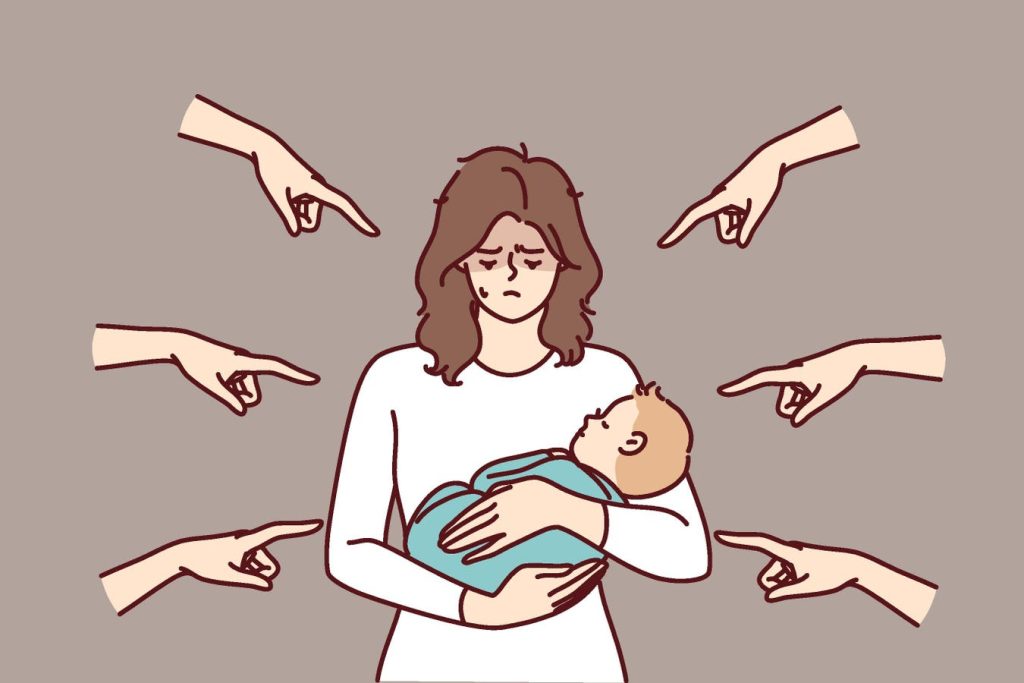Parenthood is usually depicted as the ultimate fulfillment, or as a source of unparalleled joy and purpose. However, in reality, many people struggle to find the “joy of parenthood” that is so widely advertised. Because of the dominance of the positive parenthood narrative, those who do not feel this joy often hide their true feelings—in fear of judgment and stigmatization. The idea that someone could regret having children is almost unfathomable to many, often regarded as a cruel and cold stance.
However, the number of regretful parents is more significant than you might think. Psychological research now sheds light on this hidden demographic, and poses important considerations for those unsure about parenthood. If you’re uncertain about giving up your child-free life, consider these three confessions from regretful parents—each depicting the overlooked aspects of parenthood that many refuse to admit.
1. Parenting Is Suffocating If You’re Pressured Into It
A July 2023 study published in the Journal of Family Studies found that the motivations behind the decision to have children play a crucial role in how parents perceive and experience parenthood. Notably, the authors discovered that parents who regretted having children were more likely to have made the decision to become parents due to external pressures.
According to the authors, “Their decision to have children was often the result of strong pressure from family and a desire to fit in with the majority, rather than an internal need to have a child.” They further explained that when the decision to have children is driven by a desire to conform rather than genuine personal desire, it can lead to a lack of connection with the parenting role. This disconnect can cause immense emotional distress and a total loss of identity—particularly among women who may feel that motherhood has overshadowed their true selves.
Parenthood is an enormous responsibility that requires a lifelong commitment. If you are uncertain about your readiness or desire to become a parent, it is crucial not to let others dictate that path for you. The person who will bear the weight of this decision is you, not those who pressured you into it. It’s your life that will be profoundly affected, and you will be the one facing the daily realities and demands that come with raising a child. Taking the time to reflect on what you truly want for your future; consider the immense responsibilities, and make a decision that aligns with your personal values and aspirations. Only by doing so can you ensure that you are prepared for the profound and lasting impact that parenthood will have on your life.
2. Parenting Is Self-Sacrifice—And It Isn’t Always Worth It
An August 2023 study published in the Journal of Social and Personal Relationships highlights the significant sacrifices that parenthood demands, and how—for some parents—the losses incurred by these sacrifices do not compensate for the supposed rewards. In the authors’ words, “When the baby arrives, the culture expects parents, especially moms, to find bliss in their self-sacrifice and immediate love. Yet, this pronatalist discourse, which deems reproduction normal, natural and desirable, can be harmful.”
One regretful parent in the study candidly shared their experience, stating, “They’re hard work. They take all your money and time and energy…even if you love them, you’ll always resent them. And you’ll have no one to talk to about it because everyone would look down on you.” This parent’s experience epitomizes the immense burden that parenting can impose. Despite the love parents may have for their children, the constant drain on their resources and energy can lead to deep-seated resentment. Moreover, societal judgment prevents many from expressing these feelings—which can compound their existing isolation and frustration.
Once you become a parent, your finances, time and thoughts are no longer solely yours; they become devoted to your children. This level of self-sacrifice is immense and unending. In any other circumstance, such an expectation would be considered egregious—yet it has become the norm for parents. You must be prepared to relinquish a significant portion of your mind, body and energy for the foreseeable future. If you cannot meet these demands, then having children might not be the right choice for you—as the decision to become a parent must align with your capacity for self-sacrifice.
3. Parenting Is An Inferno If You Aren’t Prepared
Both of the aforementioned studies emphasize the truth of the saying that nothing can truly prepare you for parenthood. Parents who did not anticipate the demands, sacrifices and relentless hard work required often find themselves deeply regretting their decision to have children. The abovementioned Journal of Family Studies article highlighted that, “Parenting, in the eyes of regretting parents, is beyond their capabilities. They say they never imagined that parenting would be so difficult before.”
Countless people underestimate the demands of parenthood, and thus under-prepare for it. This lack of preparation exacerbates the challenges and amplifies the sense of regret for those who find the reality of parenting overwhelming and unmanageable. One participant in the Journal of Social and Personal Relationships study poignantly captured this sentiment: “What was I unprepared for? Losing a good deal of my wife. Before our daughter was born, we were the most important people to each other. Enter child…our daughter was now the most important person.”
The narratives surrounding parenthood often normalize the complete dissolution of personal freedom, identity and relationships. The expectation is that children must come first, and everything else—including your own happiness and well-being—must come second. While this is often presented as a noble sacrifice, it is a harsh reality that only regretful parents seem brave enough to admit openly. While some parents are content with these sacrifices, others may not be.
The weight of regret getting you off your parenting game? Take the Parental Burnout Assessment to know if you need support.
Read the full article here









